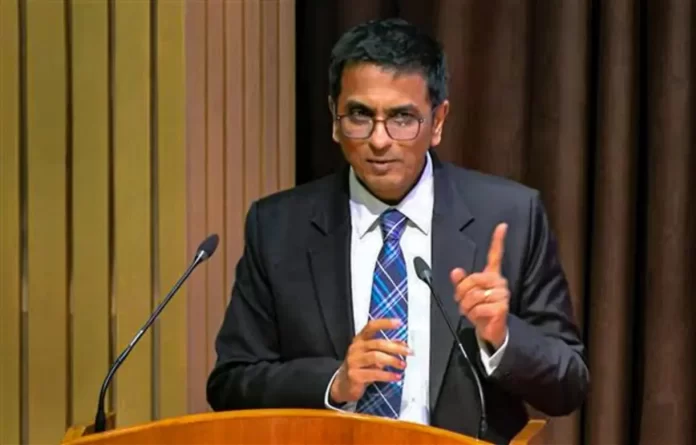Former Chief Justice of India D.Y. Chandrachud has firmly countered allegations that the judiciary is an impediment to the country’s developmental vision of Viksit Bharat. Speaking at the India Today Conclave in Mumbai, he responded to observations made by Sanjeev Sanyal, a member of the Prime Minister’s Economic Advisory Council, who had described the judiciary as a primary obstacle to national progress.
Justice Chandrachud emphasised that placing the blame on courts reflects a misreading of the larger problem. He pointed out that questions of infrastructure, budgetary allocation, and excessive government litigation lie squarely within the domain of the executive and legislature. “Who drafts the laws that increase the courts’ workload? Who is the largest litigant in the country?” he asked, suggesting that the judiciary is overburdened rather than obstructive.
Proposing reforms, he called for a parliamentary audit committee to assess how legislation—such as the Insolvency and Bankruptcy Code or the Negotiable Instruments Act—has contributed to the surge in litigation. He also stressed the importance of strengthening judicial infrastructure and equipping judges with modern skills to handle increasingly complex disputes.
On the issue of court vacations, often criticised for delaying justice, Chandrachud acknowledged their colonial origins but defended the need for judges to have time for research and judgment-writing. He added, however, that the system could be reviewed if the legal fraternity collectively agreed.
Responding to recurring charges of nepotism in judicial appointments, the former Chief Justice reiterated that merit must remain the sole basis for elevation. He explained that the collegium process involves rigorous scrutiny of professional competence, background, and integrity, while striking a balance between transparency and individual privacy.
Chandrachud also reflected on the difficulty of attracting young talent to the judiciary, noting that high entry ages for elevation leave little time for judges to serve in the higher courts. He suggested that earlier recruitment could help bring in fresh talent and allow for longer, more impactful judicial careers.
By directly addressing criticism, Chandrachud underlined that the judiciary is not a barrier to progress but rather a vital institution that requires stronger support and systemic reform to serve a rapidly developing nation.


